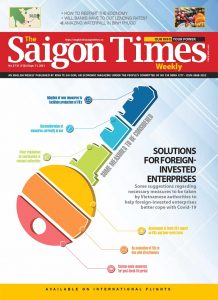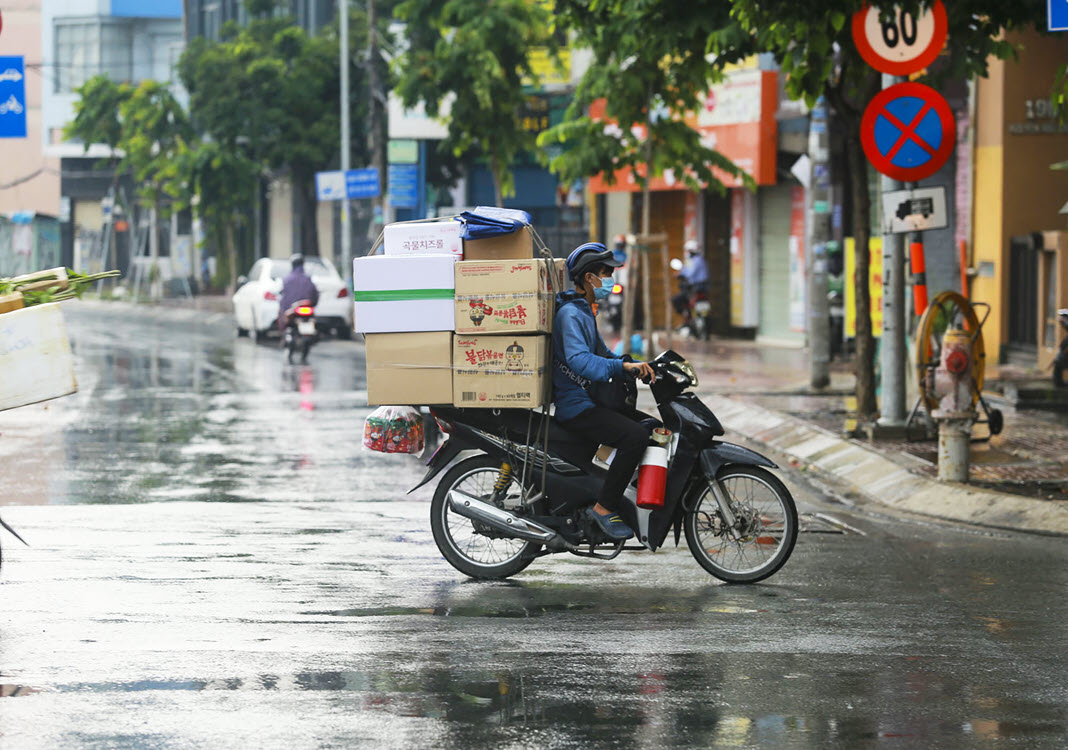More than one and a half years have elapsed since the pandemic broke out. Different localities have adopted different strategies to cope with the disease. This has adversely affected many people’s livelihood and led to inconsistency in the Government’s approach.
Covid-19 has made it crucial for Vietnam and many other countries to swiftly adopt measures to slow the spread of the virus. Policies tend to take effect quickly, with swift responses that sometimes affect the rights of citizens.
Key attributes of the formulation of pandemic policies
During a pandemic, most countries empower their governments, through written laws, to swiftly enact policies aimed at slowing the spread of the virus. Some of these rights are legislative by nature, including restrictions on citizens’ rights, priority for essential services and the mobilization of supporting resources.
At the same time, when the pandemic erupts, resources may evaporate. To ensure a consistent response, some rights that used to belong to localities are temporarily transferred to the central government. This occurs in both single states and federal states (India).
Article 250 of India’s Constitution states that during an emergency, the Parliament can implement nationwide laws pertaining to matters that used to be managed by states. Central government agencies may have to intervene by compiling and coordinating resources nationwide to achieve goals such as facilitating traffic flows and requiring the sharing of resources among localities. Disparities in approaches will lead to bottlenecks in the flow of goods that may adversely affect social and economic well-being.
In Vietnam, as of July 28, 2021, the National Assembly had implemented Resolution 30/2021/QH15, allowing the Government and the Prime Minister to adopt measures that restrict freedom of movement, introduce solutions different from or not yet covered by prevailing regulations and use directives, circulars and so on to respond to emergencies.
Inconsistent policies hamper society
On August 23, 2021, the Prime Minister issued Official Telegraph 1102/CD-TTg stressing the need to ensure smooth and timely flows of traffic and goods. Localities only check at points of departure and arrival and ensure social distancing. Inappropriate regulations must be eliminated.
The Deputy Prime Minister and the Ministry of Health also ask localities not to check vehicles with QR codes at checkpoints. Drivers’ RT-PCR or rapid antigen test results (within 72 hours) are accepted.
However, the implementation process differs.
Can Tho City: Vehicles travelling to this city from other localities to receive goods must pre-register. Cargo shipment centers are set up in outlying regions. When it is impossible to receive goods at these centers, enterprises can change drivers or locations but their compliance with social distancing measures will be assessed.
Ba Ria – Vung Tau: On-site rapid testing is conducted for all drivers of vehicles passing by the checkpoint on National Highway 51, in line with regulations by the people’s committee even when the rapid testing certificate is still in force.
An Giang: Drivers entering An Giang must all be tested. Upon the completion of the process, information is captured and the vehicles can enter the province.
Quang Ninh: Drivers must have RT-PCR negative test results 48 hours prior to entry.
On August 26, 2021, the Ministry of Transport issued Official Telegraph 12/CD-BGTVT asking localities to do away with regulations that are inconsistent with the Prime Minister’s stand, so that the flows of traffic and goods will be timely and smooth. The implementation deadline was August 8, 2021. These examples show managerial inconsistency across localities and how some of them do not comply with the central Government’s orders.
Moreover, the unclear list of essential items has also caused problems. There have not been documents listing essential products and services in line with Directive 16/CT-TTg. Only Circular 601/VPCP-KGVX on April 3, 2020 guides the implementation of Directive 16 on the fight against Covid-19. Some essential goods and services are listed in this document.
Consequently, different localities may come up with a list of essential products based on their own understanding. Different interpretations can spell trouble for the flow of goods. In response, the Ministry of Industry and Trade has suggested to the Prime Minister that products aimed at combating Covid-19, except those banned or restricted, should be allowed to be transported as usual. However, this is only a suggestion. Implementation remains a challenge. For example, when the Ministry of Education and Training allows schools to begin the academic year online, many localities have rushed to suggest that textbooks are deemed as essential products.

Policy consistency needed to combat the pandemic in Vietnam
The pandemic has been raging for almost two years, but the legal framework for tackling it remains unclear, posing challenges to stakeholders and the Government’s effort. This delay also stirs debate because Vietnam should have learnt from the experience of other countries in 2020. As Covid-19 started sweeping through the world, many countries immediately amended and implemented new laws to facilitate anti-pandemic efforts. It is time for the Vietnamese Government to establish a comprehensive, detailed and rigorous framework for fighting the pandemic nationwide.
First, there should be a document to replace Directive 16/CT-TTg (implemented in 2020) since it is no longer effective. Directive 16 is meant for short-term implementation since the solutions are based on the context of April 2020; even the lockdown applied for only 15 days (starting from 12 a.m. in April 2020). The directive also contains outdated information on clusters such as Bach Mai Hospital (Hanoi) and Buddha Bar (HCMC), requires the Ministry of Public Security to join forces with healthcare authorities to list those related to Truong Sinh Co.’s operations or asks the Ministry of Health to report to Deputy Prime Minister Trinh Dinh Dung (no longer holding the post). In other words, this directive is more of a response to specific problems than a law.
There is thus a need for a new document, which should aim for clear allocation of tasks between the central Government and local authorities. Specific criteria can be set, including the threshold for three-day data on the number of F0 cases as a percentage of the population before localities can impose restrictive measures. This will help localities avoid unnecessarily harsh measures (for fear of bearing responsibilities should anything go wrong). Consequences for diverging from the central Government’s policies can be spelled out, too. This will deter local authorities from setting their own regulations that are at odds with the national stance.
Second, it is important to spell out the overall directions, in line with the Prime Minister’s stand stated on August 29, 2021 that the fight against the pandemic remains protracted and it is important to live with it as the disease cannot be completely controlled.
Ministries should take this opportunity to improve their anti-pandemic policies, so that laws pertaining to the pandemic can take effect and help to prevent supply chain disruptions. Perhaps the Government can offer more clarity on what constitutes essential goods, conditions for vehicles to exit or enter a locality, data management relating to Covid-19, vaccination passports, support for the poor and the unemployed and environmental standards (for example, funerals for those dying of Covid-19) in case of emergency.
(*) HCMC University of Economics and Law









